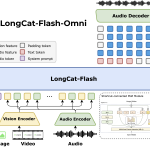Q&A with Sam Altman and Satya Nadella about the Microsoft-OpenAI partnership, OpenAI's restructuring and $100B revenue target for 2027, $3T AI buildout, more (@bg2pod)
PositiveArtificial Intelligence

In a recent Q&A, Sam Altman and Satya Nadella discussed the promising partnership between Microsoft and OpenAI, highlighting ambitious goals such as a $100 billion revenue target for 2027 and a massive $3 trillion investment in AI infrastructure. This collaboration is significant as it not only aims to advance AI technology but also positions both companies at the forefront of the AI revolution, potentially reshaping industries and creating new opportunities.
— Curated by the World Pulse Now AI Editorial System









